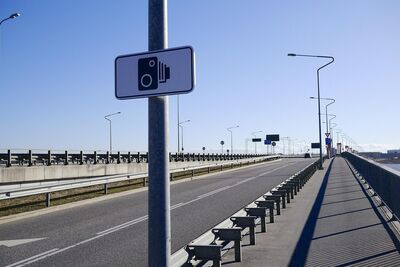News
Speed trap - for road safety or more for improving the municipal budget?

Whether speed enforcement systems benefit road safety or municipal budgets more is a popular topic of discussion. The answer is probably "both". However, it has now been proven that speed cameras do not always serve road safety.
In this context, Italy has a deadline this week. On Thursday, 12 June 2025, the popular tourist destination will introduce a new regulation concerning 'Autovelox'. This regulation applies nationwide and is designed to benefit motorists. This follows a regulation issued and published on 27 May last year, which aimed to improve road safety, transparency and fairness.
The three criticisms mentioned above stem from concerns that speed measuring devices are often set up in incomprehensible locations for drivers. In future, the Italian 'prefettura' must therefore check whether the planned location of a speed camera is suitable for road safety reasons. If so, the central government representative in each of Italy's 100-plus provinces must give express consent. Additionally, traffic control must be signposted 1 km in advance.
Another restriction on the installation of speed cameras in Italy is that they may only be set up in places where the speed limit is reduced by no more than 20 kilometres per hour. For example, a speed camera would not be permitted on a main road where the speed limit is reduced from 90 km/h to 50 km/h due to special road conditions or sensitive facilities adjacent to the road. A speed camera could not be installed here. If a speed camera were to be installed here, it would be questionable whether the primary concern is road safety or increasing the financial budget.
This is a suitable transition to the current situation in Germany. The German authorities often reduce the speed limit on motorways suddenly when there are roadworks, even though these have to be announced in advance. You can quickly find yourself in a situation where there has been no speed limit for a long stretch of motorway, and then suddenly the speed limit is reduced to 60 km/h. However, a speed camera can easily be found at such roadworks. Sometimes it is not possible to slow down that quickly without endangering the driver behind.
Another good example of this is when the speed limit is suddenly reduced on a well-developed country road, with a speed camera set up just a few metres ahead. This is further evidence that fines are an integral part of municipal budget planning in many places. Following an action for damages due to a lack of fine revenue from speed cameras, the Higher Regional Court of Frankfurt am Main ruled that road safety was not a priority in any case (Higher Regional Court of Frankfurt am Main, judgement of 7 April 2017 – 2 U 122/16).
While road safety is important, so is the household budget. For example, the well-known city of Dortmund in the Ruhr region of North Rhine-Westphalia generated around €3.7 million from speeding fines by 7 November 2021. An interesting survey on this topic can be found on the website of the German Lawyers' Association, developed by the Working Group for Traffic Law in 2020. The working group examines the extent to which German cities have benefited from fine revenues.
Source: Pixabay/bridge-365938_1280
